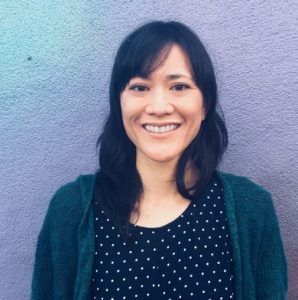You’ve probably heard the term gentrification thrown around many times to describe how neighborhoods are transforming in cities like Los Angeles, New York, Denver, Seattle, San Francisco and Portland. You probably think of gentrification and picture an influx of hip coffee shops and trendy restaurants. But, have you considered the impact on children and schools?
Jennifer Candipan, a Ph.D. candidate in sociology at USC Dornsife College of Letters, Arts and Sciences, is diving into this question. Jennifer is studying the relationship between neighborhoods and schools and is specifically looking at racial, ethnic and socioeconomic composition. She’s trying to understand the effects on students and how certain circumstances can shape a child’s experience or contribute to inequality.

She says part of her dissertation focuses on trying to understand the changes in how parents choose neighborhoods and schools, especially as more and more parents decide to send their children to non-neighborhood schools, like charter schools, magnets schools or private schools. Jennifer says she has found that the link between where you live and where you attend school has not changed much over time, but it is decoupling the most in gentrifying neighborhoods.
“I look at trends over time in terms of where this is happening and to what degree,” said Candipan. “The second part of it is understanding on a more individual level what are the family factors, the neighborhood factors, and the school factors that are contributing to those decisions.”
Candipan looks at cities across the U.S. for her research, but she says she was partly inspired by what she saw in Los Angeles. Candipan grew up in Southern California and has lived in Los Angeles at various times throughout her life.
“Everyone talks about Los Angeles being this diverse metropolitan region, but seeing all the segregation in various contexts, the segregation in the neighborhood level and the school level and all sorts of institutional settings. Being here really awakened me to these larger processes that were probably happening at a national level,” said Candipan.
Candipan says that housing policy and school policy are often looked at separately, but they shouldn’t be.
“In order to solve this very longstanding issue of school segregation you kind of have to fix things at the neighborhood level too and have affordable housing and neighborhood initiatives that keep people in place without displacing them,” said Candipan.
Candipan is a recipient of a 2018 National Academy of Education/Spencer Dissertation Fellowship, allowing her to spend this academic year writing her analysis. The fellowship is awarded to researchers who focus on education and the improvement of education. The fellowship incorporates professional development and mentoring sessions with senior academics in the field. Candipan is scheduled to present her research at the National Academy of Education/Spencer Dissertation Fellowship Spring Fellows Retreat in March in Washington D.C.
